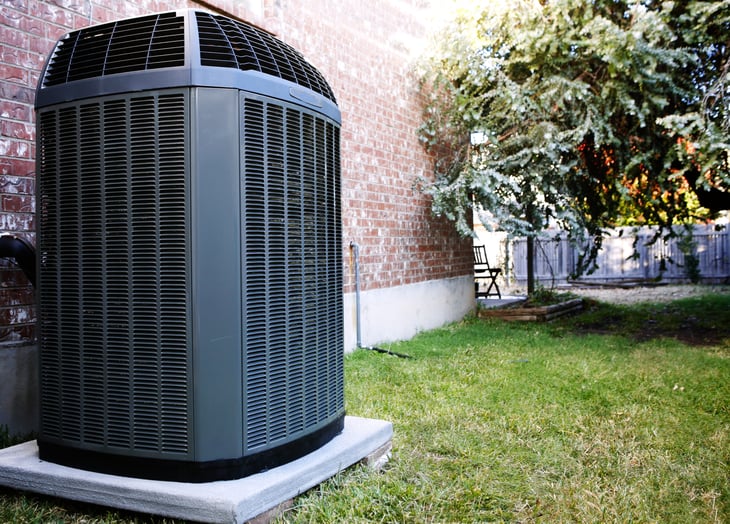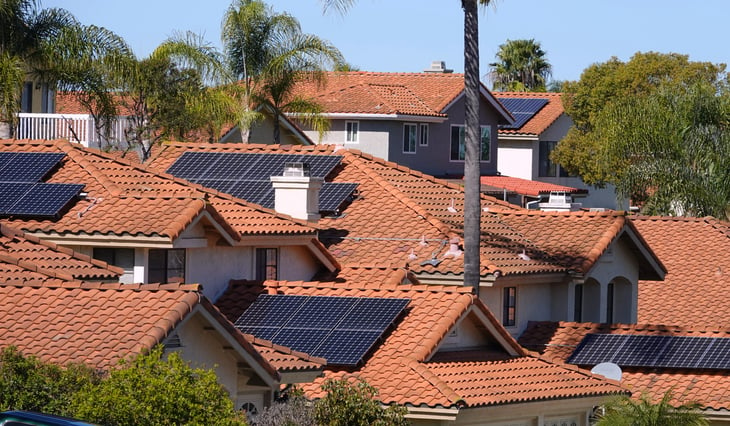
Buying and maintaining a home is expensive — and the cost just keeps climbing. Fortunately, Uncle Sam offers several tax breaks that can put more money back in a homeowner’s pocket.
Some of these deductions and credits can only be used by a small slice of homeowners nationwide. But others are available to a wider swath of folks.
Following are federal income tax breaks for homeowners that can ease the sting of homeownership costs.
1. Energy-efficient home improvement credit

If you have made specific energy-efficient improvements to your home, you might qualify for this tax credit. Qualifying expenses can include:
- Qualified energy efficiency improvements installed during the year
- Residential energy property expenses (such as new central air conditioners; natural gas, propane or oil water heaters; and natural gas, propane or oil furnaces and hot water boilers)
- Home energy audits
Through 2032, this credit is worth 30% of the cost of eligible property.
Most of the items we list in this story are tax deductions or exclusions, but this and the next one are tax credits. Credits are better than deductions because, while deductions reduce taxable income, tax credits reduce your tax bill dollar for dollar.
2. Residential clean energy credit

This tax credit is for homeowners who invest in renewable energy. Qualifying expenses can include:
- Solar electric panels
- Solar water heaters
- Wind turbines
- Geothermal heat pumps
- Fuel cells
- Battery storage technology
The residential clean energy credit is available now through 2032 and is worth 30% of the cost of qualifying new clean-energy property.
3. Capital gains exclusion when selling your home

Selling your home opens the door to one of the most generous breaks in the entire U.S. tax code.
Single homeowners who sell and enjoy a capital gain — that is, profit earned from the sale — may qualify to exclude up to $250,000 of that gain from their income. That means they won’t owe federal income taxes on that profit.
If you are married and file a joint return with your spouse, the exclusion jumps to $500,000.
There are some rules you must follow to get this break. According to the IRS:
“You’re eligible for the exclusion if you have owned and used your home as your main home for a period aggregating at least two years out of the five years prior to its date of sale.”
Other rules apply — such as that you generally are ineligible if you excluded the gain from the sale of another home during the two-year period prior to the sale of your current home.
For more, check out this page on the IRS website: IRS Topic No. 701, Sale of Your Home.
4. Net investment income exclusion when selling your home

The net investment income tax, which started in 2013, is a 3.8% tax that generally applies to income such as interest, dividends, capital gains, rental and royalty income, and non-qualified annuities.
Not everyone pays it, though; your income needs to be above a certain threshold, which is currently set at $250,000 for married couples filing jointly.
However, even for those who owe the tax, there is an exception for gains on the sale of a personal home. If such a gain is excluded from your gross income for regular income tax purposes, it also is excluded from your net investment income for the purpose of the 3.8% tax.
5. Exclusion for canceled mortgage debt

Debt forgiveness is a rose that often comes with a thorn — in the form of taxes you owe on the debt that has been canceled. This is because the IRS often considers a canceled debt to be taxable income.
However, passage of the Mortgage Forgiveness Debt Relief Act of 2007 “generally allows taxpayers to exclude income from the discharge of debt on their principal residence,” according to the IRS.
This relief applies to debt reduced through mortgage restructuring and mortgage debt forgiven in connection with a foreclosure. The provision was extended through 2025, and it allows up to $750,000 in forgiven debt to be excluded.
6. Deduction for mortgage interest

This tax break allows you to deduct from your taxes the interest you pay on a mortgage loan.
This break — and all that follow on this list — are what the IRS calls itemized deductions. That means you can take advantage of them only if you itemize your deductions as opposed to taking the standard deduction.
If you took out your loan on or before Dec. 15, 2017, you can deduct interest on a debt of up to $1 million. For homes purchased after that date, only interest applied to loan amounts of up to $750,000 can be deducted.
This deduction applies to interest on mortgages for first and second homes and refinanced mortgages. The IRS defines “home” pretty broadly — it even includes a boat house.
7. Deduction for home equity loan interest

Just as you can deduct the interest from a mortgage loan, if you itemize, you also can deduct the interest on a home equity loan or home equity line of credit.
However, for the interest to be deductible, the loan must be used to “buy, build or substantially improve your home that secures the loan,” according to the IRS.
So, you’re out of luck if you use a home equity loan to cover living expenses or pay off debts, for example.
8. Deduction for real estate property taxes

Those who itemize generally can deduct up to $10,000 of their state and local taxes, including real estate property taxes.
Tired of paying high property taxes? Check out “Can I Freeze My Property Taxes?”
9. Medical expense deduction for home improvements

One last tax break for those who itemize: Some home improvements can be deducted as medical expenses if they meet certain criteria. According to the IRS:
“You can include in medical expenses amounts you pay for special equipment installed in a home, or for improvements, if their main purpose is medical care for you, your spouse, or your dependent.”
Just note that this deduction only applies to the part of your medical and dental expenses that is more than 7.5% of your adjusted gross income. So, even if you itemize, you cannot deduct the full value of your medical expenses.
You can find more details in IRS Publication 502, Medical and Dental Expenses.





Add a Comment
Our Policy: We welcome relevant and respectful comments in order to foster healthy and informative discussions. All other comments may be removed. Comments with links are automatically held for moderation.